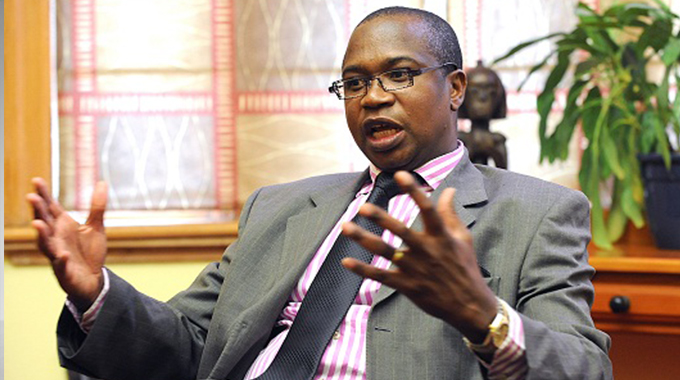
Oliver Kazunga, Senior Business Reporter
GOVERNMENT yesterday released details of the $18 billion Economic Recovery and Stimulus Package aimed at reinvigorating the economy following slowdown induced by Covid-19.
The bulk of the money is going towards the agriculture sector.
Last week, President Mnangagwa unveiled the package to provide relief to individuals, families, small business and industries as well as controlling the health crisis.
The main elements of the recovery proposal look at providing critical liquidity support to all productive sectors, protecting employment through prevention and minimisation of Covid-19 induced lay-offs.
According to a document released by the Minister of Finance and Economic Development Professor Mthuli Ncube yesterday, $6,1 billion of the total economic recovery and stimulus package would be allocated to the agriculture sector.
“Agriculture is a key sector in the economy and Government is committed to ensuring food and nutrition security. The Covid-19 pandemic requires that grain imports be minimised where possible. To this end, $3,2 billion will be set aside to fund a comprehensive winter wheat programme,” he said.
A total of $2,880 billion will be released to support the 2020/21 summer cropping season.
Prof Ncube said financing of the upcoming summer cropping programme will continue to be reviewed as the full impact of the Covid-19 becomes known.
“However, it is anticipated that a significant upward revision of the resources for the Vulnerable Farmers Input Support Programme is necessary and an amount of $2,880 billion will be made available to small-scale and communal farmers,” he said.
It is hoped that Government will soon be releasing $3,02 billion.
For the above facility, provision of Government guarantees of to $2,5 billion bank loans will be disbursed to allow companies hit by the impact of the global pandemic to access working capital.
Prof Ncube said an equity injection of $500 million was also earmarked for capacitating Silo Food Industries to enable the entity to scale-up operations.
A targeted investment of $20 million will be disbursed to companies in the leather and textile value chain.
The mining sector, which is one of the country’s economic mainstays would be supported through a $1 billion stimulus package targeting small- and large-scale miners.
“Part of this funding will be available in foreign currency,” he said.
As part of measures to support the mining sector under the above facility, Government will guarantee fuel and power for the mining sector to ensure production is not disrupted.
In addition, the Government will resuscitate closed gold mines by designating them under the Special Economic Zones concept.
Prof Ncube said to encourage investments and exploration activities within the mining industry, Government was set to reduce application fees and annual rentals.
Government through the Ministry of Mines and Mining Development is also expected to speed up the implementation of computerised cadastre system to create confidence in the management of mining titles and strengthen security of tenure to promote investment.
From the $18 billion, $500 million has been earmarked for supporting the Medium, Small and Medium Enterprises sector to assist them quickly recover from the effects of Covid-19.
Said Prof Ncube: “Government will provide these resources through additional capitalisation to SMEDCO (Small and Medium Enterprises Development Corporation), the Women’s Bank and Empower Bank to enable them support small businesses to access working capital.”
The tourism industry is also set to receive a $500 million funding support.
The arts industry will also be supported by $20 million to assist performing artists in Covid-19 recovery efforts after Government noted that artists play a critical role in spreading the global pandemic messages and have been equally affected by the adverse impact of the disease.
A $1 billion health sector support fund is also on offer and Government has come up with a raft of measures to support the sector, among such initiatives as having all Covid-19 personnel to be covered by a 24-hour personal accident cover while on duty.
“In addition to the $6,5 billion which was allowed for the health sector in the 2020 budget, Government has ring-fenced the health levy collections for the next six months for Covid-19 response expenditure, an additional 4 000 personnel will be recruited, and frontline health personnel will earn a tax free risk allowance,” he said.
Prof Ncube said the Government has introduced a food grant to support at least one million vulnerable individuals for a period of eight months to cater for food needs.
“Within this, are the 200 000 micro enterprise owners whose businesses have been disrupted by the lockdown over a period of eight months, the expenditure will be $2,4 billion,” Prof Ncube said.
Other relief measures include the relaxation of import duties on selected raw materials for the next three quarters of the year.
The Government has also come up with corporate tax credits for Covid-19 donations while lending interest rates have been lowered to not more than 20 percent with loans restructured to allow businesses to recover.
The private sector has joined hands mobilising resources to complement Government in the fight against Covid-19.
“A comprehensive reduction of statutory reserve requirements on banks will be implemented in order to release $2 billion of liquidity on order to increase the capacity of banks to lend,” he said.
The economic recovery and stimulus package Government has unveiled is nine percent of the Gross Domestic Product and 29 percent of the 2020 national budget.
This, Prof Ncube said reflects Government’s desire to continue sourcing resources to meet fully the challenges imposed on the citizenry and the economy by the global pandemic. — @okazunga
